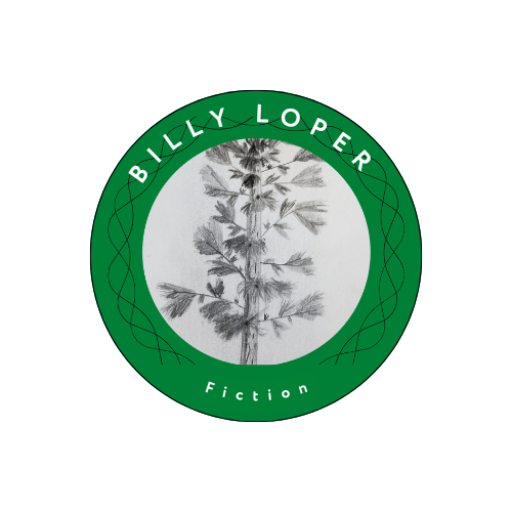THIS POST WAS ORIGINALLY HOSTED ON SUBSTACK
Welcome to the Newsletter!
Thanks for stopping by! I hope you enjoy it and will share it with your friends and family.
Thanks for reading Billy Don Loper-Fiction and Fascinations! Subscribe for free to receive new posts and support my work.
Subscribed
Recent Announcements:
THE SUMMER GOTHIC was released with Panorame Press, which contains a lot of great short fiction including my short story “Key to the Heart.” Read it here: https://balaflannan.wixsite.com/panorame-press
I have an interview coming up with FANTASTICLAND, THE PACK, and KILLING IT author Mike Bockoven coming later this month! Stay posed for updates on that.
Project Progress:
My Sci-Fantasy project is back from beta and undergoing another round of edits before going to my copy editor for another pass! My other projects are on hold in the meantime.
Special Announcement!
My wife, Miranda Loper, has started accepting freelance editing services. If you need an affordable fiction editor, find her at @mloperediting!
Recent Fascinations:
When I opened this document, and in the week preceding it as I thought through what all I needed to cover, I planned to talk about my thoughts on social media. I even made a note a little while ago about exactly that, telling my paltry handful of readers to expect it. Then, of course, a new wrench entered the tangled disaster that is our digital existence: Meta’s “Threads.” I have a lot of thoughts about this, and the perpetual search of someone to replace our dying Uncle Twitter, but those thoughts are nebulous and this, frankly, isn’t Twitter or a space for unformed “discourse.” So, I apologize, but I’ll be waiting another month to talk about social media and what it’s doing to us.
Instead, I think instead I want to talk about something a little more squarely focused on the actual craft of writing: The emotions of version editing.
As I write this newsletter, I’m also finishing up my seventh version of my Sci-Fantasy manuscript, which will likely turn into an eighth and maybe even a ninth version. Hell, maybe a tenth. I am not a Stephen King-type, who does three or four drafts and is done. I edit and read and edit and read and get others to read it and then edit it again. Writing is collaborative for me, a work of collective art between me and my beta readers and my copyeditor. Writing is, for me, a process of versions.
For short stories, this is a pretty quick process for me, and often connected to rejections. When a story I submit is rejected, I edit it and then submit it somewhere new. A neat process of feedback, if just implicit feedback, and revision. As I’ve worked on truly finishing my first full manuscript draft, the inherent emotional rollercoaster of that has really become apparent. This is the seventh version, but, because of how I write, is really only the forth solid, concrete version. As I’ve gone through this cycle of edit, beta, edit, editor, edit, beta, etc. etc. etc, I’ve realized that I am going through a pretty consistent cycle of emotions. The more I work on a round of edits, the more I begin to doubt my work, the more I begin to hate this project, the more I start to stray to other creative ideas.
This isn’t a unique experience, and in fact almost every major writer I can think of has written about this at some point. I have, however, started trying to pull apart why this process makes me start to feel this way, and have come to some conclusions that have given me a little piece of mind. I hope it can do the same for some of y’all.
When I’m editing, especially after receiving feedback of some type on my WIP, I become laser focused on the issues at hand. The gaps in story or character or pacing. The, by the very definition of feedback, places where my story has failed in some way. That focus on flaw, failure, and shortcoming, wears on me over time and, as is the case for so many writers, I hate everything about it by the end. I sent my current WIP away to my editor with a sense of literal relief. When they told me it would be a month before they can get to it, it was just a further sense of relief. I don’t want to look at it, I hate it. I’m tired of it.
I know when I get it back, I know that I will be in love with it all over again, because that is how it has been, every. other. time.
That is perhaps the most surreal part of the process for me. The total sense of excitement and elation that comes when I’m given the chance to work on this project again after a break. As I’ve honed in on the dichotomy between the feeling when I am near the end of an edit and the feeling at the start of a new one, I’ve started to focus more on that point. A fixed moment on the horizon when I will get to start chipping away at this story again, knowing that eventually it will be done.
Eventually I’ll set this aside to start it down the query trenches. Eventually, that elation and excitement has to stop. So it is better to focus on the coming excitement, than current irritations. Like so much in fiction, I’ve realized that to really love my art, my craft, I have to cast off the expected negatives and stereotypical complaints and focus on my love for the process. Instead of becoming steeped in the negative, I have started, or tried to start, seeing the editing process as steps towards further collaborative excitement. More feedback. Another beginning.
Yes, editing does feel miserable right now, but it won’t later. Later, it will be art again.
Thanks for reading!
Thanks for taking the time to read my newsletter.
Check out my website: billyloperhistory.com
Check me out on Twitter at: PineyWoodsHIS
Check me out on Facebook at: Billy Don Loper-Fiction
Check me out on Instagram at: bloperficiton




